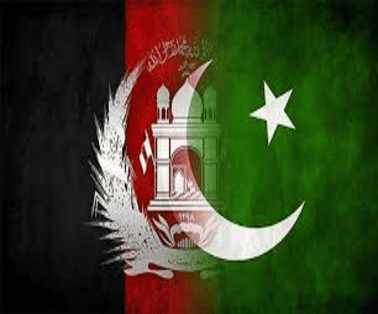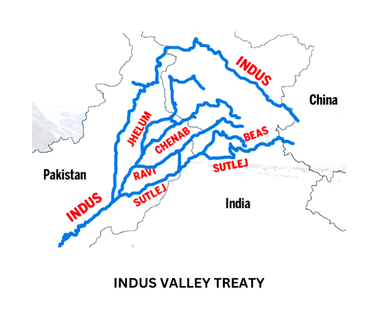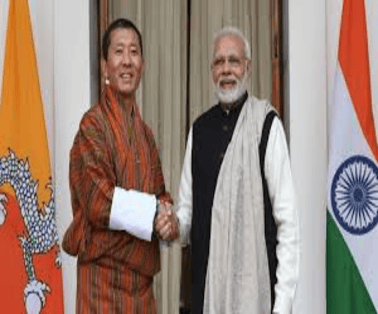After Afghanistan accused Pakistan of killing eight of its citizens in two airstrikes, Islamabad confirmed that it had carried out “intelligence-based anti-terrorist operations” inside the neighboring country, escalating Pakistan Afghanistan relations.
Key Points On Pakistan Afghanistan Relations
- In response, the Taliban government fired at Pakistani troops along the border, intensifying Pakistan Afghanistan relations.
- The two countries also exchanged heated rhetoric, with Pakistan accusing Afghanistan of sheltering terrorists and the Taliban denying the charge.
- Pakistan accused Afghanistan of actively patronising TTP [Tehreek-i-Taliban Pakistan] and using them as a proxy against Pakistan.
- Zabiullah Mujahid, spokesman for the Taliban administration, warned: “Pakistan shouldn’t blame Afghanistan for the lack of control, incompetence and problems in its own territory.
What Led To The Strikes?
- A security post in Mir Ali, North Waziristan, was attacked, killing seven Pakistani soldiers, leading to a vow of retaliation by Pakistan. The Pakistan Afghanistan relations have grown strained since the Taliban returned to power.
Why Are Pakistan’s Ties With the Taliban Deteriorating?
TTP
- Ever since the Taliban seized power again in Afghanistan, Pakistan has realized it faces a problem, not the ally it had hoped for. The Taliban’s return has emboldened the TTP and provided it with a safe haven, worsening Pakistan Afghanistan relations.
- For decades, Pakistan promoted hardline Sunni Islam in northern and western regions, including Afghanistan, to counter Pashtun nationalism. This strategy contributed to the creation of the Taliban during the Soviet era.
- After the 2001 U.S. invasion of Afghanistan, Pakistan’s support for the U.S. meant opposing the Taliban. However, this dynamic changed when TTP emerged in 2007 as an extension of the Afghan Taliban, with the aim to establish a strict Islamic state in Pakistan, further complicating Pakistan Afghanistan relations.
- Since the Taliban’s return to power in Afghanistan, Pakistan has witnessed an increase in TTP activities and found itself in conflict with both the Taliban regime and its own militant factions, deepening Pakistan Afghanistan relations.
Refugees
- Another flashpoint between Pakistan and the Taliban regime recently has been Islamabad’s decision to deport thousands of Afghan immigrants. Pakistan Afghanistan relations have been strained due to economic reasons, as Pakistan struggles to accommodate these refugees amid its own financial crisis.
- Pakistan has argued that Afghan refugees contribute to street crimes and militant attacks, worsening internal security and adding pressure to the already burdened economy.
Border
- After the Taliban took control in 2021, tensions rose because they refused to accept the Durand Line as the permanent border. The Durand Line divides the Pashtun ethnic group, creating a major source of dispute between Afghanistan and Pakistan.
- The refusal of the Taliban to recognize this border has led to small skirmishes and ongoing border tensions, impacting Pakistan Afghanistan relations.
The Taliban
- The Taliban, a Sunni Islamist nationalist and pro-Pashtun movement, was founded in the early 1990s. It ruled most of Afghanistan from 1996 until 2001 before being ousted by the U.S. invasion.
- The Taliban’s rise to power in the 1990s was largely backed by Pakistan, which saw the group as a means to consolidate its influence in Afghanistan and combat regional instability.
- However, after the U.S. invasion in 2001, Pakistan was forced to support the U.S. “war on terror,” leading to a shift in its relationship with the Taliban. Following the 2021 return of the Taliban to power, Pakistan Afghanistan relations have grown increasingly complex, especially with the support the Taliban gives to TTP.
Tehrik-e-Taliban Pakistan (TTP)
- TTP was formed in 2007 to unite opposition against the Pakistani military, and it has maintained close ties to the Afghan Taliban, further complicating Pakistan Afghanistan relations.
- TTP’s stated objectives include expelling Pakistan’s influence in the tribal regions, implementing a strict interpretation of Sharia law, and establishing an Islamic caliphate within Pakistan.
- The TTP has historically maintained strong connections with senior al-Qaida leaders, and its attacks on Pakistani soil have escalated tensions between the two countries, reinforcing the instability in Pakistan Afghanistan relations.
Durand Line
- The Durand Line is the 1,640-mile (2,640-kilometer) border between Afghanistan and Pakistan, established in 1893 during British rule. Since 1947, when Pakistan became an independent nation, the line has been a point of contention between the two countries.
- The line cuts through Pashtun-dominated tribal areas, which the Pashtun community considers to be an artificial division. Successive Afghan governments have disputed the line, claiming Pashtun territories in Pakistan, including the Federally Administered Tribal Areas (FATA) and parts of the Khyber Pakhtunkhwa Province.
- The Taliban’s refusal to accept the Durand Line as a permanent border has exacerbated Pakistan Afghanistan relations, leading to sporadic clashes and diplomatic tensions between the two countries.
Conclusion
Pakistan Afghanistan relations continue to be marked by tension over issues such as border disputes, the rise of TTP, and the Taliban’s role in Afghanistan. While both countries share a complex history, their current relationship is shaped by ongoing military, political, and humanitarian challenges. As the situation evolves, the future of Pakistan Afghanistan relations will depend on the diplomatic strategies both nations employ to resolve these critical issues.
To Download Monthly Current Affairs PDF Click here
Click here to get a free demo
Discover all about CLAT Exam



